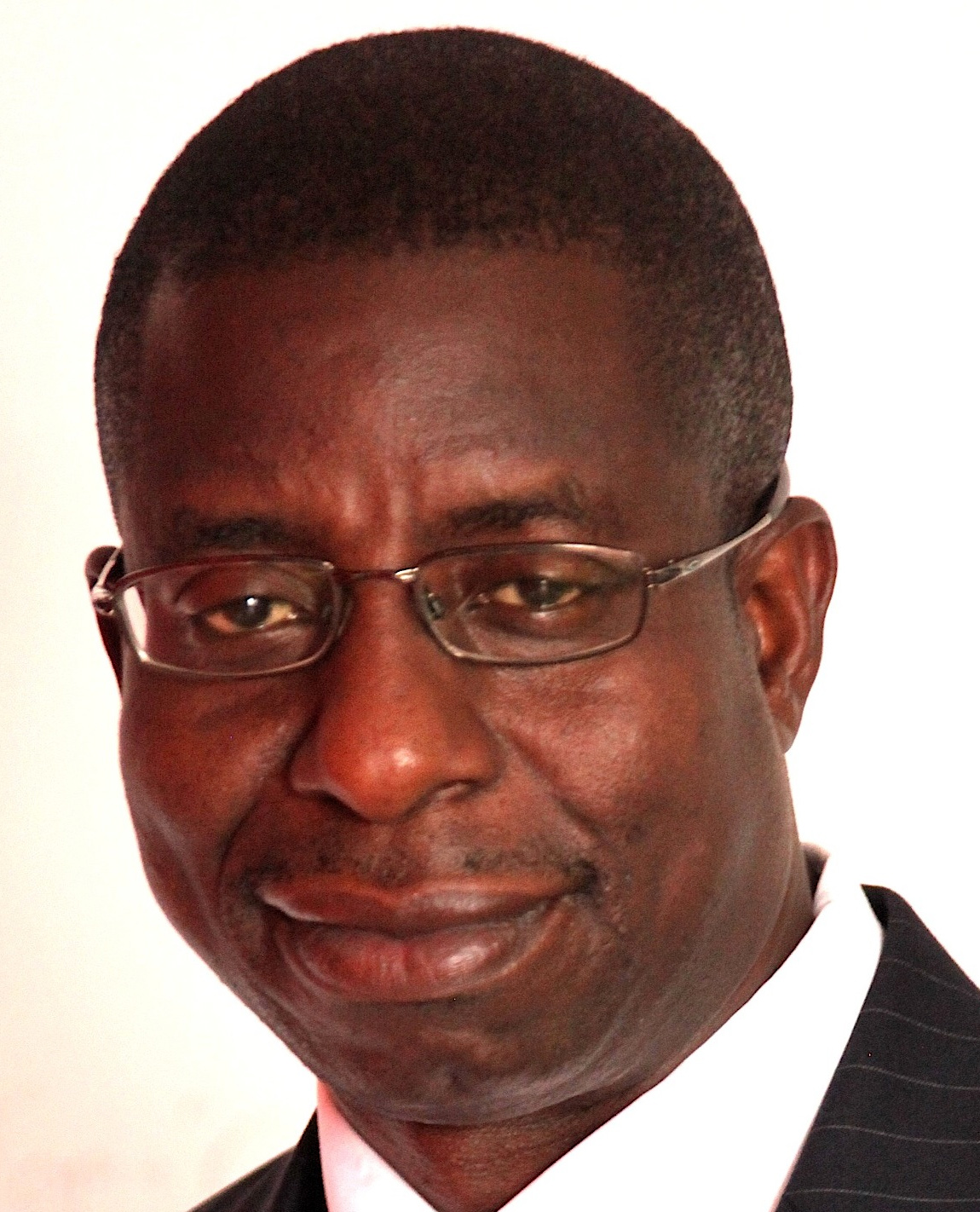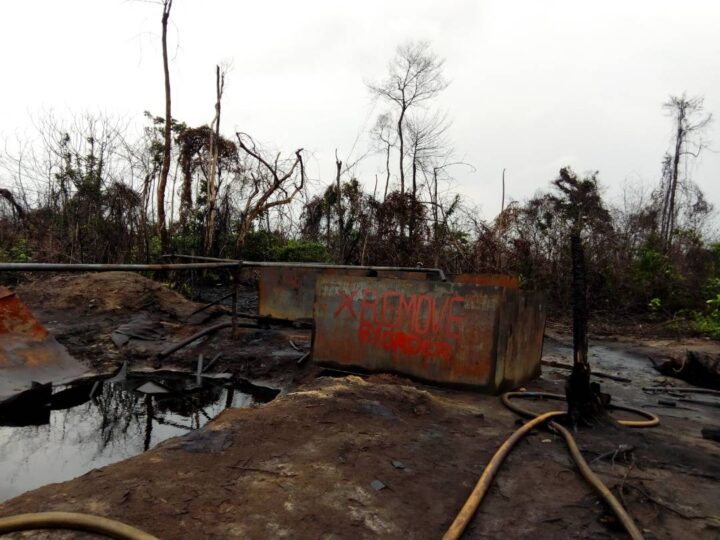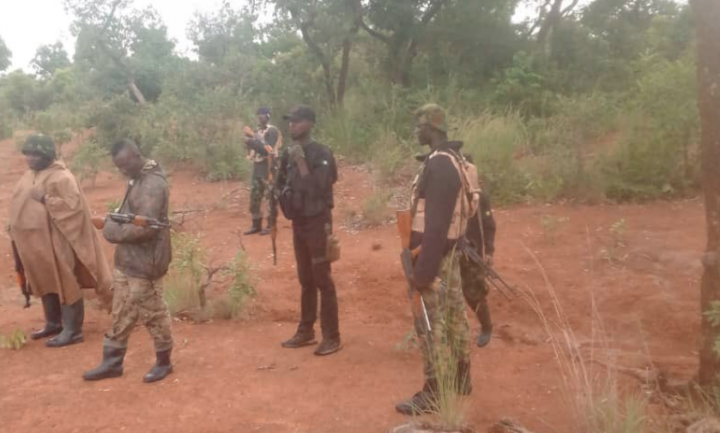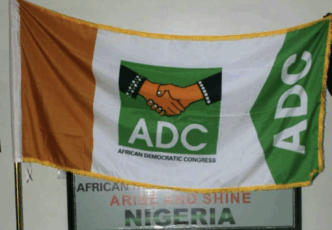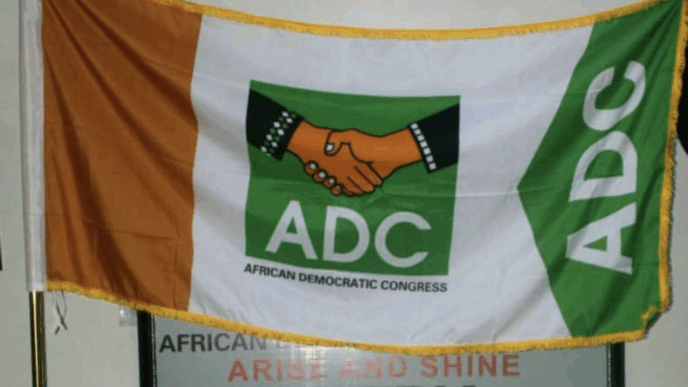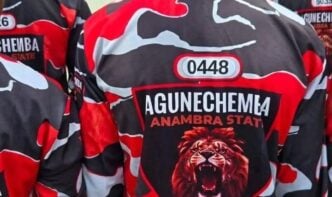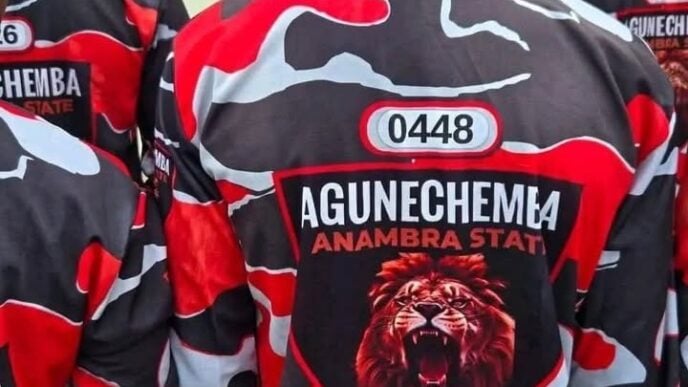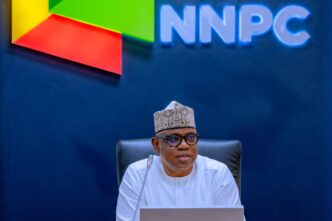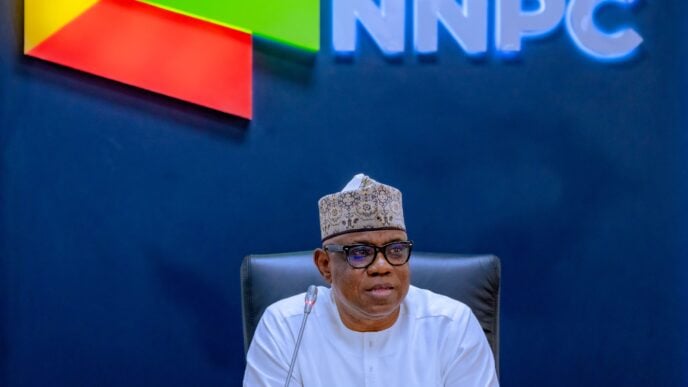It goes without saying that Dr Samuel Ogbuku is a son of the soil and waters of the Niger Delta. And not just because he was born in the old Rivers State, now rivers and Bayelsa, but because he lives and breathes the air — I’m tempted to say polluted air but let me be kind to his lungs! — every day of his conscious life. And he had been preparing to be a leader of his long-suffering fellow denizens of the Niger Delta ever since he was in Primary 5 when a teacher rebuked him and his classmates for making too much noise by telling them, “Why are you making so much noise? Don’t you know you’re the leaders of tomorrow? Leaders don’t make noise. And you shouldn’t.” As he tells us in the second chapter entitled “The Intellectual Activist,” he took his teacher’s words literally, as in tomorrow meant tomorrow, the day after the admonition. Let me quote him:
“Those words sank deep into my heart and became the rudder that has influenced my actions ever since. I took that tomorrow literally. I believed the next day was the tomorrow, my teacher was talking about. I began to look forward to every new day with great expectation, day after day, month after month and year after year until it became part of me to wait for that tomorrow to come.”
I’m not sure when Dr Ogbuku thinks the tomorrow that made him a leader finally came: when he was elected Speaker of the Bayelsa State Student’s Parliament at the University of Port Harcourtꓼ when he was elected national president of the National Union of Bayelsa State Students and he started rubbing shoulders with Governor Diepreye Alamieyesieghaꓼ when he was elected publicity secretary of the Ijaw Youth Council (IYC), Central Zone, and his emergence as an activist for a more humane and livable Niger Deltaꓼ as Chief of Staff to the Governor of Bayelsa State at the relatively young age of 31ꓼ or upon being appointed MD of NDDC? Well, actually, he is not coy about it, so he tells us that it was when he appeared in the front page of Vanguard newspaper as president of NUBSS, at the age of 24. “Finally,”, he says, “I saw my dreams of becoming a leader come true because it was only leaders who graced the front pages of a newspaper”! But the opinion is no longer his alone, as I hope to show you through his thoughts and writings published as a book in Rethinking the Niger Delta being presented to the public today.
The blight and plight of the Niger Delta has been crying out for purposeful governmental intervention even before independence, leading to the constitution in 1958 of the Willinks Commission. Several half-hearted or non-hearted efforts after, the Justice Alfa Belgore Commission led to the establishment of the Oil Mineral Producing Areas Development Commission (OMPADEC) in 1993. Its ineffectiveness and the rise in the agitations of the people of the region, with an increasing turn to militancy by the youths, culminated in the establishment of the Niger Delta Development Commission (NDDC) which Ogbuku now has the honour of leading as its Managing Director and Chief Executive Officer. The paradox of a region blessed with immense oil and gas wealth which contribute 90 percent of the nation’s treasury yet wallows in gross underdevelopment and grinding poverty is nothing but a scandal. And this is not a claim yelled out only by Niger Delta activists and militants. As Ogbuku points out, the World Bank in its 1995 report, described the Niger Delta “as the least developed area of Nigeria, with per capita income of less than $280 per annum,” adding that “all indices of development such as education, health, sanitation, job creation, water and other physical infrastructure, were far below acceptable standards.”
Advertisement
It is this sorry state that he, working with the governing board, is determined to transform. And in a hurry, because too much time has been lost and the world is rapidly transitioning away from fossil fuels. He has laid out his vision for a more fit-for-purpose Commission and the rapid, transparent development of the region, encapsulated in the slogan, Rewind to Rebirth. To do so, the new board had to, and must continue to, protect the resources of the Commissionꓼ determine the development needs of the regionꓼ deliver on projects of impactꓼ ensure value for money in the execution of programmesꓼ enter into partnerships in order to get more of the Commission’s work doneꓼ and constantly engage with the goal of winning back the confidence of stakeholders.
It is a huge task which demands unshakable determination, enormous resources and the collaboration of well-intentioned partners. So before going further, we should pause to have him explain what Rewind to Rebirth means:
“That realisation [of the magnitude of work to be done] became the seed of the Rewind to Rebirth agenda of the Governing Board. The rewind part is essential because to move forward, we needed to look backward. What did the Commission do right? What went wrong and why? Why were so many people — from villagers in Bayelsa to Distinguished Senators in Abuja — convinced that the NDDC was beyond redemption even with the impactful projects that it had undertaken across the region? To rewind meant to go back to the core values on which the Commission was founded: equity, accountability, regional development. With rebirth we are saying that it is not enough to just critique the past. We must become something new. Something better. Rebirth speaks to our future. A reborn NDDC would not just repackage old ideas. We must transform the way we do things: How we select projects, engage communities, manage funds, and evaluate and communicate our successes. Rebirth means transitioning from a Commission known for the number of contracts it awards, to one that constantly impact [sic] lives and drive [sic] socio-economic growth and progress.”
Advertisement
Well, rewinding or looking back, what did he and the new board see? He gives the following report: about 7,483 NDDC projects in the past 25 years (though I suspect he might have understated the figure), out of which about 3,357 are roads and bridges, about 611 are renewable energy projects, while 3,427 are still ongoing. If only 3,427 or 44 percent of the total number of projects since inception have been completed, that means that 4,056 or more than half of the total of 7,483 did not, or are yet to, deliver any benefit to the people of the region. If we bear in mind that some of those projects may have outlasted their lifespans, or were simply washed away or have become unmotorable (like so many roads), or decrepit due to lack of maintenance and stakeholders’ unwillingness to own the projects (like so many health centres, renovated classrooms, street lamps), then the sheer amount of money that has been wasted on abandoned or unsustained projects becomes glaringly too large a drain on very scarce resources. As Ogbuku notes, regrettably, while speaking on the topic of dashed expectations, an “NDDC project had come to mean something abandoned, halfdone, or poorly done.” But as he also says, optimistically, the aim of the rewind to rebirth vision is not to return to the “many years of unplanned and mismanaged project execution.”
Nor, hopefully, to that other scandal of an astonishing lack of continuity in the management of NDDC and so of crippling chaos in policy, management and project execution, not to mention political interference which I will address later. What can we say about the fact that no single MD/CEO of the Commission ever served out a single tenure of four years, or that no board chairman (with the single exception of the inaugural chairman, Mr Onyema Ugochukwu), and, so, therefore, no board, ever served intact a full four-year term? Call it institutional fatigue, crisis or paralysis, whatever term comes to your mind, but here is Ogbuku describing what is no less than political malpractice or unspeakable malice among the many other problems that plagued the Commission:
“[T]here was institutional fatigue. The NDDC had become a revolving door of leadership. In twenty-three years, the Commission had seen seventeen managing directors in different mutations. Most lasted just over a year. A few stayed only months. The result was a crisis of continuity. No leader had the time or space to implement a vision. Every new board began afresh. Every new managing director had to start from scratch.”
This problem of political malpractice or unspeakable malice — perhaps, just sheer cynicism borne of contempt for the harried minority indigenes of the Niger Delta — is not the subjective view of Ogbuku or Niger Deltans alone. In its effort to reorganise and reposition NDDC to move from this painful past towards transformational development, the new board hired KPMG, the international management consulting firm, and this is what they had to say about that:
Advertisement
“NDDC has experienced frequent board dissolutions and Executive Management changes, causing governance instability. We noted that the Board has been reconstituted six times (6) times between 2000 and 2023 and there have been eight (8) and seventeen (17) changes in the Chairperson and MD positions, respectively. The most recent Board was dissolved after only five (5) months in office. This is attributed to the absence of a formal, politically independent process for Board and Executive Management removal. This instability of leadership has led to disruptions in the continuity of strategic initiatives and long-term projects; strategic misalignment within the Commission, loss of valuable institutional knowledge and expertise, and loss of stakeholder confidence.”
Permit me to add that I had the privilege of bringing this problem to the attention of former President Muhammadu Buhari (may his soul rest in peace) on 7 January 2019. At the time, rumours were rife that our board, headed by Senator Victor Ndoma-Egba, was about to be dissolved barely two years into its tenure. In fact, rumour was that a dissolution had already been thwarted at the last minute, which is why we were still in office at all, but that a better orchestrated one was in the making. Thus, when I had the honour of a private presidential visit, the great instability and cost to the development of the Niger Delta that political interference constituted was the first of three things I mentioned, urging him to resist every pressure to sack yet another board barely midway into its tenure. Here are my exact words:
“No doubt, Mr President, you are aware that NDDC is saddled with many problems, some institutional, some statutory, and some socio-political that prevent it from optimal delivery on its mandate, and so of winning a great number of friends in the restive Niger Delta. It is my humble opinion that in order for NDDC to deliver on its founding mission of “rapid and sustainable development of the Niger Delta to one that is economically prosperous, socially stable, ecologically regenerative and politically peaceful,” it is critically important that it be restructured and refocussed on its mandate during your tenure, and that this will require a special presidential order to be executed within 24 months. Most, if not all, of the problems that bedevil NDDC and which have led to the dissolution of previous boards, thus causing very costly instability, can be traced to this need.”
Well, precisely 17 days after, our board was dissolved, remarkably, while the President was abroad. The forces that wanted the board dissolved had finally had their way. You know, when you try and don’t succeed, try again! And then began the revolving door of interim administrations with a dizzying 6 between 2019 and 2023ꓼ all, needless to say, without a governing board, with the most senior staff of the commission acting as MD/CEO twice. Ogbuku is convinced that this is the root of nearly all of NDDC’s problems, and doubtlessly of the 13,000 abandoned projects that the KPMG audit identified. The point is worth elaborating and Ogbuku makes his view very clear, so I will quote him again:
Advertisement
Management instability is at the root of the performance of the Commission. In 25 years, we have had the unenviable record of not having any chief executive officer complete his term of four years. Look at the walls of our Boardroom and count the number of people that have run this Commission. In 25 years, we should have had only six or seven chief executive officers. But we have far more than that and some of these leadership lasted six months or less. Each new leadership wants to start their own projects, build their legacy and because the NDDC Act rotates these position [sic] from state to state, the managing directors come under intense pressure from their states to start new projects there. And suddenly, they are kicked out, another person comes in and they abandoned [sic] all those projects and start their own and the cycle continues. That is the simple reason we have uncompleted NDDC project [sic] littering [sic] all over the place.”
Which is why I’m delighted that President Tinubu chose to renew hope for NDDC and the Niger Delta by opting for continuity. Dr Ogbuku was appointed by his predecessor and no one would have faulted President Tinubu if he had appointed someone else to the officeꓼ indeed, it would have fitted neatly into a narrative of starting anew. And that brings me back to the Rewind to Rebirth motto of the current board. For it seems to me a clear effort to instill some institutional memory where everything has worked towards little or none. I’m happy to note the continuity between the previous and the current boards. The former, on which I served, had set a similar goal of looking back to look forward in what it called the 4R Strategy as follows:
Advertisement
- Restructuring the bloated Balance sheet. As a first step to this goal, that board cancelled a tranche of projects at zero percent completion, thereby reducing the balance sheet by N200 billion, a token but a good start. The next phase was to have been to review and probably cancel all projects at less than 5% completion, and so on until the Commission’s books were rid of all unviable projects.
- Reforming the governance systems. The Commission’s administrative framework was so heavily bureaucratic and steeped in the analog mode of doing business as to be a clog in the wheel of development. Before KPMG, Mr Joe Abah, at the time Director-General of the Bureau of Public Service Reforms, said that everything that can possibly be wrong in an institution was to be found in NDDC. The intent was reforms that would also address the untenable concentration of duties, functions and power in the headquarters. The states where the land and people are had to be the Commission’s fields of operation, thus reducing the crushing bureaucracy and paralyzing traffic at the headquarters in Port Harcourt. In short, NDDC “governance” had to come closer to the people.
- Restoring the Core Mandate of the Commission. Since this inevitably raises the question of adequate funding, the board approved modalities for establishing a Niger Delta Development Bank whose capital would be from institutional investors, with a minimum stake by NDDC.
- Reaffirming our commitment to doing what’s right and proper, including constant engagement with stakeholder communities, state governments, development partners, civil society organisations, among others.
Pursuant to these reform goals, that board heartily embraced the need for active collaboration by stakeholder communities and initiated the following projects and programmes designed to foster sustainable regional development:
- Review of the Niger Delta Regional Development Master Plan, prompted by the need to update the original master plan, ten years after (to accord with the present realities of not the Niger Delta alone but also the world at large, especially with regard to the Sustainable Development Goals (SDGs) benchmark. The revised plan would be produced in collaboration with member state governments and development partners and will result in an actionable list of projects and programmes to be executed by all development partners in the region. We saw this as even more imperative as it is apparent that the vision enunciated in the NDDC enabling Act can best be achieved through an integrated regional economy able to competitively exploit its comparative advantage as one of the world’s largest oil and gas regions, but without losing sight of the fact that hydrocarbon or fossil fuels reserves are not only exhaustible but also that the world is on the verge of moving to green energy sources. How well the Niger Delta would be able to survive in the emerging brave new world of green energy would depend on how effective the Commission was in driving a sustainable development model beyond oil.
- The Niger Delta Regional Power Pool: Energy is arguably the primary bane of development in Nigeria, the Niger Delta not excluded (even though, ironically, gas, the cheapest fossil source of power, is daily flared to devastating health effects in the region!). This project aimed to deliver 7GW (seven gigawatts) of affordable energy by harvesting the copious gas supplies in the region to power gas-fired power plants. The energy generated would feed secure business parks situated across the region in raw material localities. The business parks in turn would focus on the production of goods to replace annual imports currently worth about $40 billion in the Gulf of Guinea countries. The pre-feasibility study had been concluded and raw material sites identified. The next stage of the project was to have been a pilot to gauge the actual feasibility of the entire plan.
- The Niger Delta Development Bank: to provide long term low interest development funds for implementing projects that would foster regional development, especially those that result from the review of the Master Plan. The bank would be guided by corporate governance standards based on international best practice.
- Niger Delta Digital e-Learning Initiative: the goal being to change the way our children learn by upgrading their learning tools from paper notes to electronic tablets. It would involve massive retraining of teachers and upgrading of curriculums across primary, secondary and tertiary educational institutions. The project was to be private sector funded with strategic support provided by NDDC to access educational institutions across the region and state governments that control these schools.
- Niger Delta Broadband Initiative: to provide high speed broadband internet access across the Niger Delta region by connecting the excess submarine fibre optics capacity at Sao Tome to Qua Iboe terminal, Akwa Ibom state. The fibre cable would run between select cities in the region and within these cities as a metropolitan fibre ring. The project requires coordination across government agencies and private sector firms — again PSD/PPP collaboration.
I commend Ogbuku and the board, headed by Mr Chiedu Ebie, for voting for continuity. And I commend them even more for the many things they have achieved, both in physical project delivery and in institutional reorganisation, thus already beginning to change the ugly narrative of NDDC as a colossal waste. In the view of Ogbuku, this is a perception problem as NDDC has done immense good in the Niger Delta, especially in the rural areas, but as he knows, perception often trumps reality and, as often, with good reason. Yet it is true, as he reminds us, that “Today, most of the government presence you see in rural communities in the region are NDDC projects” and that they “are the only signs of government activities there.” And when I read in Rethinking the Niger Delta the number of things that he and this board have done, and the big plans for legacy projects, for moving from transactional to transformative projects, all I feel is pure excitement. At inauguration, President Tinubu instructed the board to complete all abandoned projects and this has been dutifully followed. For instance, we learn that in May last year, the President inaugurated the N8.1billion 132/33kv electricity substation at Ode-Erinje in Okitipupa Local Government Area of Ondo State that restored light to five local governments which had been without power for 15 years. In that same month, the following five impactful projects were commissioned: the 9 kilometre Obehie-Oke-Ikpe road in Ukwa West LGA, Abia State; the 25.7 kilometre Ogbia -Nembe Road in Bayelsa State; a 15MVA 33/11KV electricity injection substation in Amufi, Ikpoba-Okha Local Government Area, Edo State; the 45km double-circuit 33KV feeder line from Omotosho Power Station to Okitipupa, Ondo State, and the 6km Iko-Atabrikang-Akata-Opulom-Ikot Inwang-Okoroutip-Iwochang Road and 600m Ibeno Bridge in Ibeno LGA, Akwa Ibom State.
Advertisement
But perhaps none of these projects would have been completed if, as Ogbuku informs us, President Tinubu had not backed NDDC with a N1 trillion facility. “At inauguration,” I quote him, “Mr President directed us to complete all abandoned projects in the region, including roads, bridges, schools, and healthcare facilities. In our 2024 budget, Mr. President also approved for us to raise N1 trillion facility to finance the completion of some of our legacy projects that had been abandoned. The President has given us all the necessary support.” He adds that, “Since the beginning of this administration, the statutory allocation to the Commission from the federal government has tripled.”
One other area in which Ogbuku and the board have done tremendous work is in restoring confidence in local and international stakeholders and securing the commitment of important partners for sustainable development. It is obvious that the needs of the Niger Delta far outstrip the N1.9 trillion budget of 2024. Public-Private partnerships or PPPs are sorely needed to bridge the yawning funding gap. In this regard, the 27-kilometre Ogbia-Nembe Road constructed in partnership with Shell Petroleum Development Company, is a shining example. The road connects 14 different communities of Bayelsa State, cuts through mangrove swamps, features numerous bridges and 99 culverts and cost N24 billion or $16 million. We have to believe him when Ogbuku states that it is “the most outstanding partnership which NDDC has entered into since its inception.”
Advertisement
NDDC has taken the quest for partners for sustainable and transformative development, for effective PPPs, to Lagos and Houston, USA. I had to tamp down my excitement and caution myself to wait for its commencement when I read Ogbuku’s report that at the PPP summit in Lagos, NDDC “signed a memorandum of understanding with a United States-based firm, Atlanta Global Resources, Inc, to build a railway network that will connect the nine states of the Niger Delta region.” A trans-Niger-Delta rail network! I have only one question: when, MD, sir, will the sod-turning event be? I would like to witness that bright and historic day in the Niger Delta!
And that is not all. NDDC, in partnership with the Federal Government and the International Fund for Agricultural Development (IFAD), are collaborating to invest $90 million in the Livelihood Improvement Family Enterprises Niger Delta (LIFE-ND) programme, a new strategy to boost food production, create jobs and grow the rural economy across the Niger Delta. A total of 38,000 persons are expected to benefit directly and have their lives transformed during its six-year tenure. NDDC has also signed two more MOUs: with the Nigeria Liquified Natural Gas Limited (NLNG) for collaboration “on diverse fronts in the delivery of sustainable development projects,” and with the World Health Organisation (WHO) “towards the goal of implementing a health insurance scheme for Niger Deltans.” Unfortunately, the MOU with the United States Agency for International Development (USAID) for youth development is as good as “dead,” with President Donald Trump’s outright hostility to Africa — constituted by shithole countries, in his unforgettable phrase — having already led to the dissolution of the agency. As Ogbuku pursues more partners for sustainable development, we have to hope that his efforts to persuade Chevron to emulate Shell in Ogbia-Nembe and partner with NDDC in constructing the 67-km Warri–Escravos road, and to bring on board the Tony Elumelu Foundation, among others, will be successful.
Another area where Ogbuku and the new board are seeking to change the somber narrative of the Niger Delta is in efforts to tackle youth unemployment and in the diligent management of foreign post-graduate scholarship awards for human capital development. Thus, in 2023, Ogbuku writes, NDDC “introduced a youth development and empowerment scheme designed to create a comprehensive resource database for the youth population of the Niger Delta region. The scheme, known as Holistic Opportunities, Projects, and Engagement (HOPE), aims to provide a platform to empower the region’s youths on a sustainable basis. . . . They are expected to register on the database to benefit from jobs created in areas such as agro-allied production, technology, and others.” This is in addition to training in the area of welding and fabrication which in January 2023 saw to 200 youths being trained and equipped for opportunities in the engineering, oil and gas, construction, and manufacturing sectors. NDDC donated welding equipment, toolboxes and a cash grant of N100,000 to the trainees. For more effective incubating, mentoring and monitoring, NDDC allocated N30 billion in the 2024 budget to support businesses, the fund to be administered by the Niger Delta Chamber of Commerce, Industry, Mines and Agriculture.
The template for any transformative and sustainable development of the Niger Delta, needless to say, is a master plan. Unfortunately, the old plan meant to last 15 years had expired and ten years after had not been renewed. Ogbuku and the new board continued with the plan of the previous board and have now replaced it with the Niger Delta Regional Development Strategy (NDRDS) anchored upon seven pillars drawn from the United Nations Sustainable Development Goals (SDGs), and other National and Regional Development goals, as follows: Economic Developmentꓼ Social Developmentꓼ Infrastructure Developmentꓼ Environmental Developmentꓼ Security, Law and Orderꓼ Governance and Institutionꓼ and Financing the Plan.
I could list several more of the admirable things Dr Ogbuku informs us NDDC has done under his tenure, is doing now and plans to do but time and space do not permit. I cannot, for instance, list all of the 250 abandoned projects that have been completed following the President’s marching order. From lighting up the streets and helping to reduce criminal activity at night, not to mention the nice aesthetic of light at night, to uLesson devices distributed to students in collaboration with the First Lady’s Renewed Hope Initiative, Ogbuku tells us of the determination of the new board to be judged by results and not rhetoric. And nothing demonstrates this commitment more than the astonishing step of signing a performance bond with the Economic and Financial Crimes Commission (EFCC). Nothing in the Commission’s enabling law, nor in civil service regulations, nor even ethically, requires this. It is a self-imposed undertaking as a vow to do what they have set out to do. This is how Ogbuku explains it while speaking at the commissioning of projects in Bayelsa built by NDDC with proceeds of funds recovered by EFCC:
“To strengthen the emerging internal culture of accountability and prudence, we entered into a Performance Bond with the Economic and Financial Crimes Commission, EFCC. That partnership was historic. It was the first time in the Commission’s history that an anti-corruption agency was embedded into our performance structure. This bond allowed the EFCC to independently monitor procurement processes, contract implementation, and budget performance. It was a bold step. It sent a clear message that today’s NDDC is committed to doing things differently and is not afraid of scrutiny. In fact, we welcome scrutiny. I believe transparency is not a threat to good work; it is proof of it.”
It is a bold a statement of conviction. The Niger Delta has for too long been let down unforgivably, even by its own people, and Ogbuku and the new board have decided to risk their reputation in their time in office by declaring: WE WILL NOT FAIL YOU AND HERE IS OUR BOND! And, so, they have outlined an ambitious agenda for 2025 onwards. “One of our top priorities as a board,” he says,
“is to focus on legacy projects — not token gestures or fragmented, piecemeal projects that make no meaningful difference in people’s lives. The NDDC is an intervention agency, and our interventions must be strategic and impactful. We aim to execute infrastructure and development projects that will connect communities, improve lives, and stand the test of time. These will be large-scale, regionally significant projects — projects worthy of commissioning by Mr. President himself. In this regard, we have also identified a critical flaw in our budgeting approach. It is counterproductive to propose a ₦10 billion project and allocate only ₦1 billion per year. That effectively turns a one-year project into a decade-long affair. We intend to correct this. Our new approach will prioritise full project funding within a single budget cycle wherever possible. That way, we can start and complete key projects within a year, eliminate cost overruns, and increase the Commission’s credibility.”
Read together with his promise to touch every community, one might begin to wonder, however, if he is not being too optimistic or over-aspirational and eventually, self-contradictory. Touching every community can only be by way of what, using his own words, would be “token gestures or fragmented, piecemeal projects.” Many of them are what we call “quick impact projects”: 1.5 km roads, renovation of classroom blocks, supply of school furniture, construction of school hostels and of jetties, etc. So, to what extent can these be sustained while harnessing resources for the huge transformational legacy projects worthy of commissioning by the President? Let me say that my queries aside, this is music to my ears! I have advocated precisely this sort of development approach right from my stint on our short-lived board to as recently as July last year at a two-day NDDC workshop on Wage Administration, Policy Implementation and Revenue Generation in Public Agencies in Port Harcourt. But the question remains: What would be the effective ratio of transformational infrastructure or legacy projects to quick impact ones? Our board had proposed 70-30 percent, but would that suffice? I’m perfectly happy to see all of NDDC’s non-recurrent expenditure budget devoted to completing, let us say, a regional power project, even if for three years. An ecologically regenerative Niger Delta requires sustainable, waste-to-wealth treatment and recycling plants. To my knowledge, there is none such in the entire region where even one is not enough for a single member state. Might a state — my state, Delta, for example — be willing to commit its entire NDDC budget allocation for two to three years to establishing one such plant in each of its three senatorial zones, in collaboration with suitable partners? And is this perhaps in line with what Dr Ogbuku informs us during his first media briefing as MD (in Chapter 13, “Our Commitment to Transparency”), that President Tinubu himself directed? I quote him: “This is also in line with the directive from Mr. President, who has instructed that all funds released to the NDDC must be tied to specific, transformational projects and must be executed by firms with demonstrated capacity to deliver.”
The fierce urgency of building legacy projects now is clear to everyone, especially in a global epoch of transitioning from fossil or hydrocarbon to green and renewable energy. Dr Ogbuku reminds us of this in the “Beyond Oil” vision of the current board, and in his declaration: “We are in a hurry to deliver convincingly on the mandate of the Commission. Our transformation appetite is huge.”
Another issue to ponder is that of political interests and pressures which, as we know, have too often constituted a formidable obstacle to the diligent discharge of the Commission’s mandate. Dr Ogbuku rightly notes that “As a Federal Government agency, there’s bound to be a lot of political pressure. While you cannot totally eliminate these pressures, we try to minimise them.” To make this problem more concrete, Ogbuku gives the instance of desilting contracts which constitute 70 percent of NDDC’s debt burden. Yet the contracts, for the most part, were fake, just a means of defrauding the Niger Delta. It is worth quoting him at length:
“One thing that has actually bedeviled the Commission over the years is the issue of payment of desilting. Desilting represents up to 70 percent of NDDC’s current debt burden. Most of these desilting payments are fake and that is one thing people have used to defraud the NDDC. If these desilting projects were properly done, we would not have had the level of flooding we have had in the region. Hence, we have decided to put a stop to it. Under my watch, NDDC will not pay for desilting. We are not going to award new desilting contracts except where it is extremely necessary. We know that there are areas that need proper canalisation. We will subject such to open bidding. These are some of the steps we have taken. This decision has put us under intense pressure. For one, almost all the interim pay certificates (IPCs) which most politically-exposed people have are for desilting projects. It is not easy to take such a decision, it could even cost us our jobs. But we are undeterred. We want to do the right thing for the region. If we keep paying for desilting, we will not have any funds left to invest in the development of the region. To continue to fund desilting is to invest in the underdevelopment of the region.”
It is an issue so serious that Dr Ogbuku returns to it during remarks he made at a reception in his honour by the University of Port Harcourt, his alma mater. While bemoaning the fact that the expectations of the long-suffering people of the Niger Delta far surpass the resources available to meet them, he pointed out the attitude of politicians who see NDDC as “a cash cow to fund their ambitions instead of a vehicle to develop the Niger Delta.” So, to what extent can political pressure be minimised for NDDC to breathe and be free to commit scarce resources to legacy projects?
Now let me say a few more words about the book and its place in the annals of the Niger Delta. First, I must commend Dr Ogbuku for publishing his thoughts and vision of the Niger Delta. I am not aware of any such book, during or after tenure (or, rather, after being sacked) by an MD/CEO of NDDC. Perhaps the disappointment of not being allowed to complete even a single tenure when the law allows for a reappointment to a second tenure has never quite put any of them in the mood to do so. I know that the vision espoused in Rethinking the Niger Delta is not solely Ogbuku’s, so the board deserves some credit as well. As the chairman of the board, Mr Ebie, says in his foreword, this book is “a manifesto of transformation.” Strictly speaking, it is a collection of speeches and remarks made by Ogbuku since he became MD/CEO of NDDC. For the reason of its singularity alone, if not the bold vision and commitment he espouses, this book will be a reference point for discussions of NDDC, the many obstacles it has faced since inception and, yet, its tremendous achievements notwithstanding, while looking to the future in a fast-changing world.
In the course of writing this review essay, I learnt that many of the speeches were actually delivered ex tempore and had to be painstakingly transcribed. Although being a collection of speeches means that several of them echo each other and in many instances are repetitions of facts and statements, it is still remarkable the level of clarity and consistency that they display. Commendation must also go to the editorial and production team for that labour of collating the written speeches and tracking down and transcribing the ones that existed only orally. Besides, the book is beautifully printed and bound. I commend it to friends and foes alike of the Niger Delta.
I began with Ogbuku’s dream as a 5-year-old primary school pupil of being a leader of tomorrow, literalising the tomorrow of his teacher as the very next day. I believe we can all agree that Dr Ogbuku is undisputedly a leader of today and also of tomorrow. And that the vision he has outlined in Rethinking the Niger Delta for our beloved but beleaguered Niger Delta, often described as a microcosm of Nigeria, gives proof of that. May he be enabled in every way to redeem the bond of performance he and the board have signed with the people of the Niger Delta through EFCC.
Being a review of the book, Rethinking the Niger Delta, written by Dr Samuel Ogbuku, MD/CEO of the Niger Delta Development Commission (NDDC), presented on Tuesday, 19 August 2025, at Transcorp Hilton Hotel, Abuja. Ifowodo is a lawyer, poet, scholar and rights activist. He was the Delta State representative on the governing board of NDDC from November 2016-January 2019. He is currently a principal partner at Remedium Law Partners.
Views expressed by contributors are strictly personal and not of TheCable.
